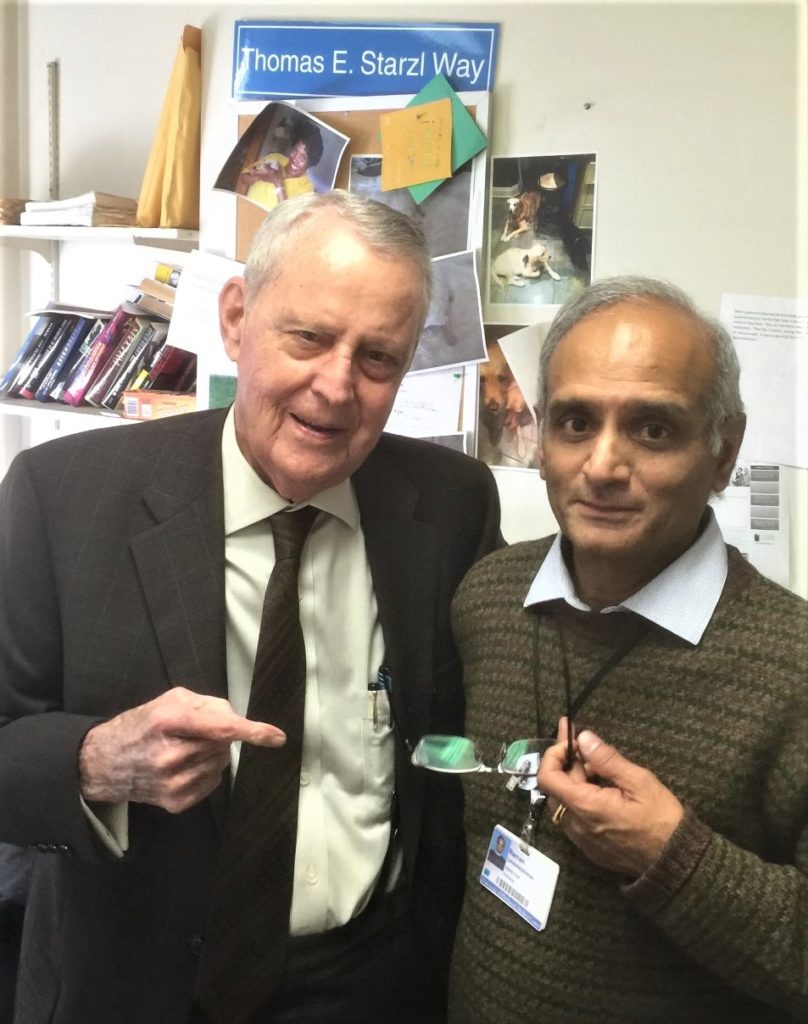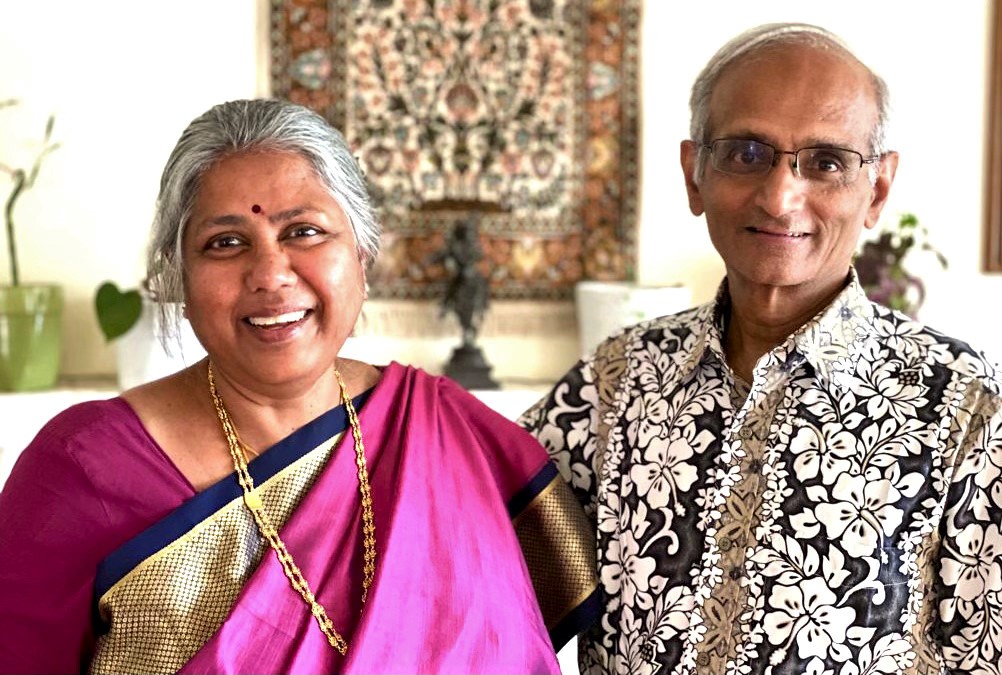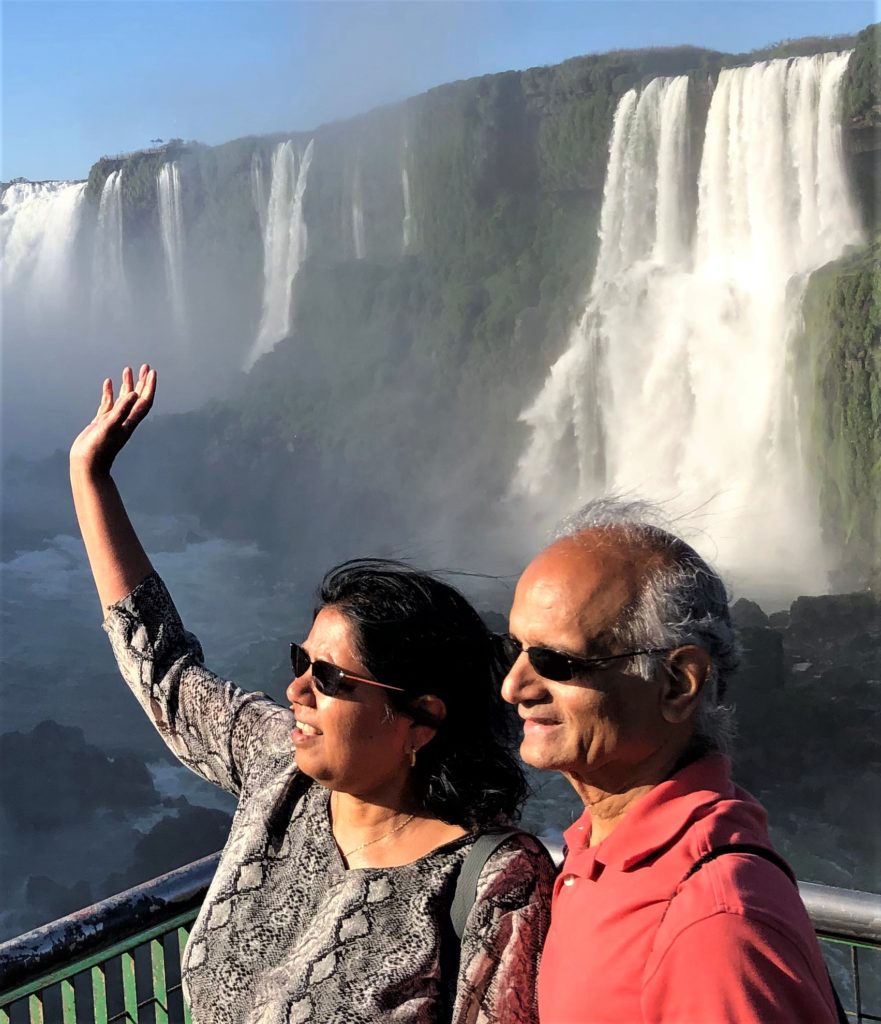By Manjari Kulkarni, Upper St Clair, PA
Note: Manjari Kulkarni was born and raised in Pittsburgh. She practices orthodontics in the South Hills and lives with her family in Upper St Clair.
Almost daily, the mild-mannered professor of Tamil origin crossed my path as we began our days at the University of Pittsburgh’s Salk Hall, the location of the Pharmacy and Dental Schools. On several occasions, as we rode the elevator, Dr. Venkat (whom my parents endearingly call “the Pharmacy Venkat”) shared with me several life lessons, as he would with his own pharmacy students. Little did I know that this quiet professor who I would often see smiling behind the lens of a camera at big parties in social gatherings, is a hero among us.
Dr. Raman Venkataramanan is Professor of Pharmaceutical Sciences at the University of Pittsburgh School of Pharmacy. He received his B.Pharm from the University of Madras and M.Pharm from BITS, Pilani, India; and Ph.D. from the University of British Columbia, Vancouver, Canada.
After a postdoctoral fellowship at the University of Washington, he joined the University of Pittsburgh in 1980 as faculty. The adage “Luck favors the prepared,” applies to Dr. Venkat perfectly. In 1982 he was approached to work with the world-renowned transplant surgeon, Dr. Thomas Starzl, to conduct clinical research on anti-rejection drugs for liver transplants. Cyclosporine was the most researched drug for anti-rejection then, and the biggest challenge in organ transplants was solving the problem of the rejection of the transplanted organ by the recipient’s body.
Dr. Venkat vividly recalls Dr. Starzl visiting him in his office, holding a small bottle of a chemical he had learned about at a conference in Japan. He asked Dr. Venkat if he knew what this bottle held. Dr. Venkat knew this was a preliminary chemical studied as a possible anti-rejection drug for liver transplants. After this meeting, Dr. Starzl recruited Dr. Venkat to be a lead researcher on this product. The chemical, at that time, was called FK-900506. Dr. Venkat and his colleagues studied its use in small and large animal transplant models.
Eventually, the chemical, called FK-506, became known as Tacrolimus, the primary immunosuppressive drug currently used in liver as well as other transplants. This was one of the few drugs to get the quickest FDA approval due to the efforts of Dr. Venkat and his colleagues. This work made Pittsburgh a leader in organ transplants. Dr. Venkat considers himself blessed that he directly worked with patients to see how his efforts were helping transplant patients. Along the way, Dr. Venkat also published nearly 400 research papers.
In October 2021, the American Association of Pharmaceutical Scientists (AAPS) honored Dr Venkat with its prestigious Distinguished Service Award, appreciating his lifetime service as a member of AAPS. This was for him the culmination of a string of recognition he received from his peers. Details here: www.tinyurl.com/VenkataramananPeerRecognition
Inspired by his grandparents, Dr. Venkat chose healthcare as his career calling. Unable get into medical college in Tamil Nadu, India despite his academic excellence, he chose pharmacy as an alternative. His greatest interest has been teaching and he is passionate about sharing what he has learned from his countless mentors and personal heroes.
Outside of pharmacy teaching and research, Dr. Venkat teaches Sanskrit he learned from Shri Rajagopala Iyer in India (and later getting it refreshed in Jyotsna Kalavar’s classes here) to kids at the Chinmaya Mission,
Dr. Venkat, again with humility, describes his wife Padma as “the brainy one,” who is always learning and changing to keep herself sharp. He says, “I never could have had any success without Padma’s support.” Dr. Venkat, reflecting on turning 70 recently, quotes from Vivekachoodamani attributed to Adi Sankara, “जन्तूनां नरजन्म दुर्लभम्,” Jantunaam narajanma durlabham, “Being born as a human among the living is rare.” And he adds with a smile. “And then, being able to do what we are passionate about is a bonus.” Who can disagree with that? ∎ — END




